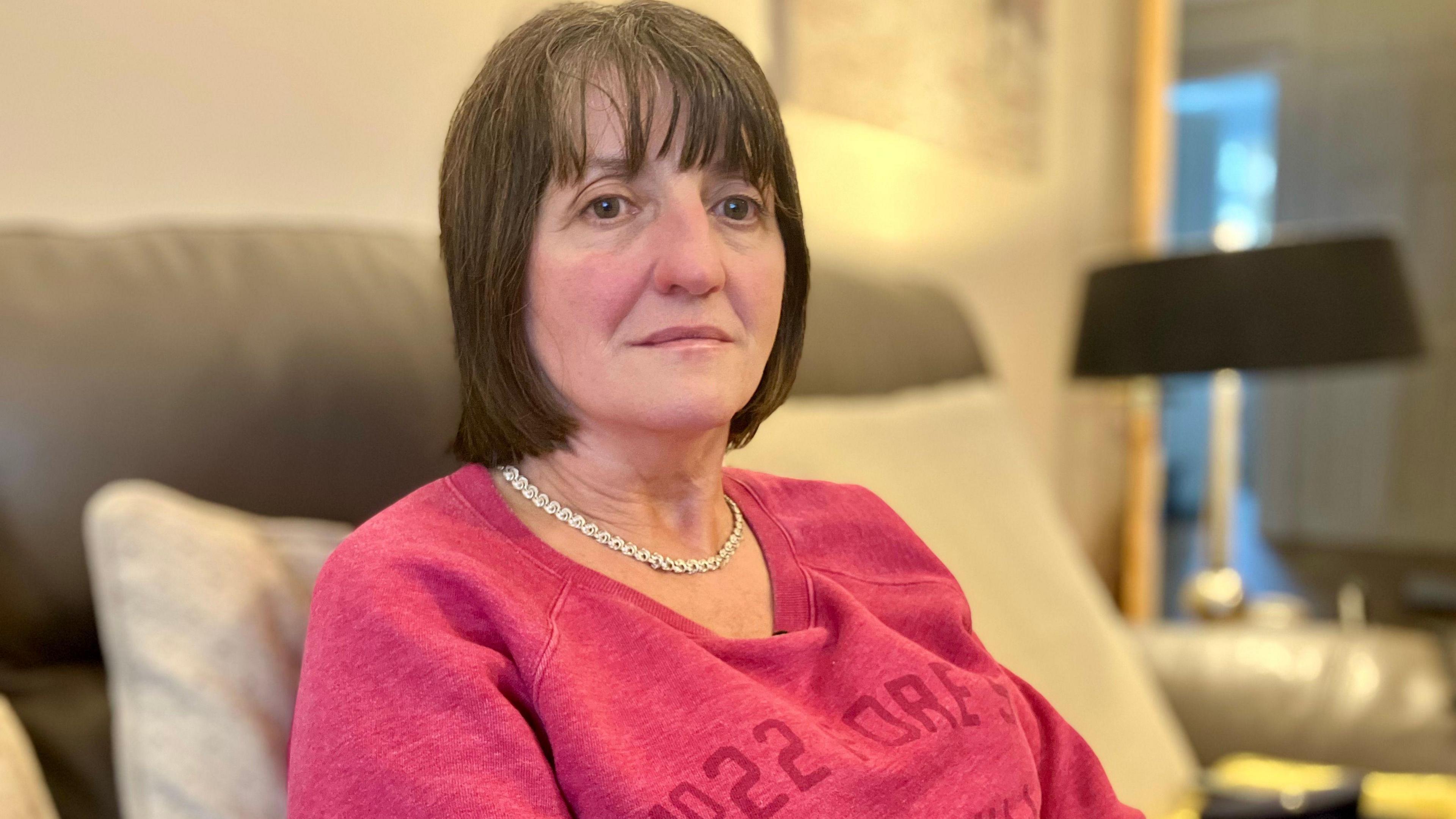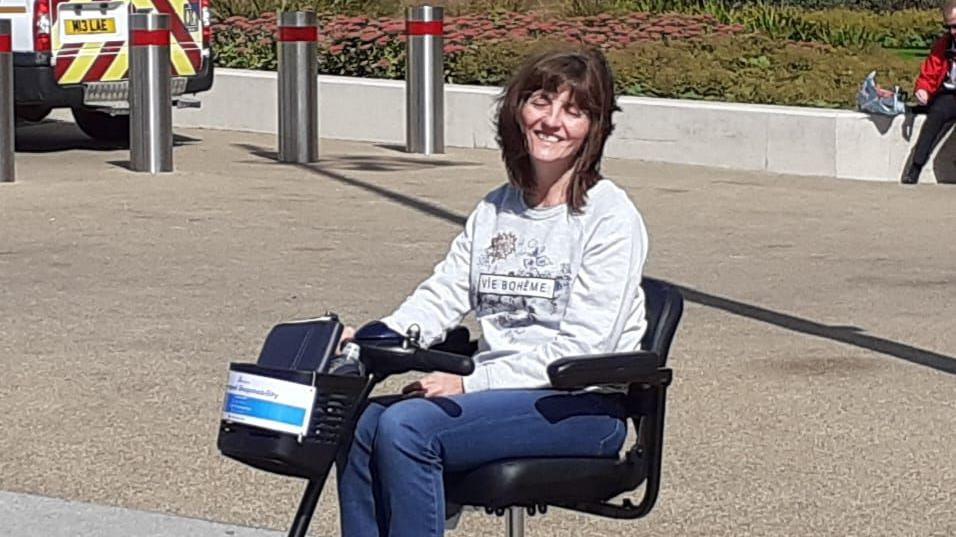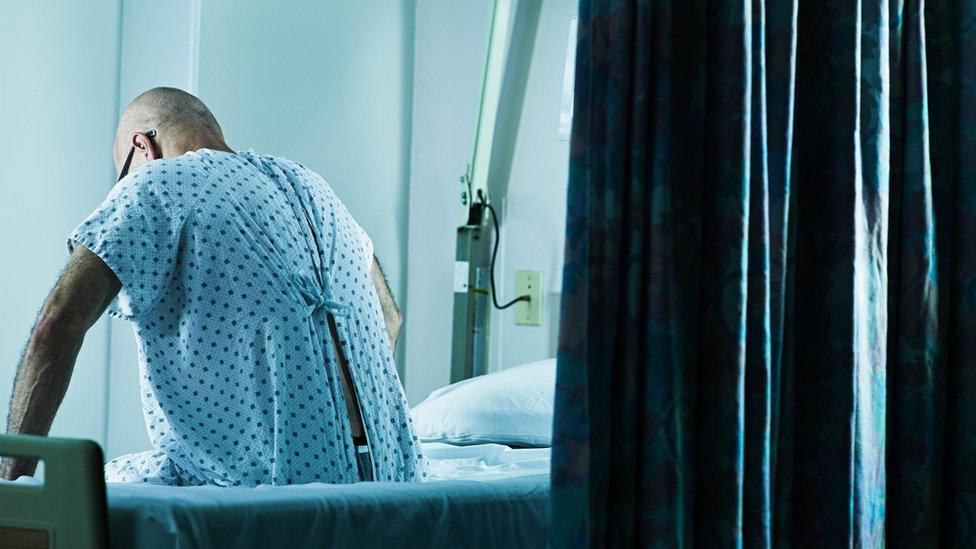Patient's anger as hundreds miss out on medication

Rachelle Ledsam was diagnosed with multiple sclerosis in 2009 and has been waiting for fampridine since 2019
- Published
Hundreds of multiple sclerosis patients may have missed out on potentially life-improving medication, an ombudsman has found.
Aneurin Bevan health board failed to provide fampridine, external to a patient, even though it was approved by the Welsh government as an NHS-funded treatment in December 2019.
Rachelle Ledsam, 57, who has MS, said: "I was really upset - but that’s now turned to anger, because I think 'why can’t I have it'?"
The health board said it was "working through a plan" to introduce fampridine.
I've been left two weeks without ADHD medication
- Published7 October 2023
Diabetes drug shortage after weight loss use
- Published6 September 2023
The investigation by Public Services Ombudsman for Wales Michelle Morris found as many as 500 MS patients in the health board area in south-east Wales had missed out on the treatment.
Ms Morris launched an investigation after Ms Ledsam complained that the health board had failed to provide her with the medication.
Fampridine is licensed and can improve the walking ability for some people with MS, according to the NHS, external.
Ms Ledsam, from Caerphilly county, was diagnosed in 2009 and has been waiting for the drug since 2019.

“It’s not a little thing, to me, it’s massive,” says Rachelle Ledsam
She said she was told by doctors she would benefit from it, but was later told they did not have the staff to offer the treatment.
"Why can’t I have it? Why can’t I try it? I think all the health boards in Wales should be doing it at the same time, everyone in Wales should be able to get it," said Ms Ledsam.
"Aneurin Bevan [health board] have been hopeless, and I just think how many people are in my shoes. It’s a massive change - if it works it’ll help with my walking, my balance, my confidence.
"What if my MS gets worse and worse and worse and then it won’t work for me - it’s just not on, it’s not fair at all."
Ms Ledsam said it would improve her quality of life.
“To be able to just go out of my front door and be able to walk to the shop, it’s the little things, to go over to see my friend who just lives over the road,” she said.
Despite fampridine being approved more than four years ago, the ombudsman found the health board did not offer it, despite new medicines generally being offered within 60 days of approval by the Welsh government.
The ombudsman said this amounted to "maladministration" and said there was evidence the health board had estimated there may be about 500 patients eligible for this treatment in its area.
Ms Morris recommended the health board apologise and urgently establish an action plan, including timescales.
Aneurin Bevan health board accepted Ms Morris' findings and agreed to implement the recommendations, adding that it would contact Ms Ledsam to apologise "for the distress this must have caused her".
It added: "We are currently working through a plan to see how we can meet the ombudsman’s recommendations in relation to the introduction of fampridine in our health board area."
Related topics
- Published25 January 2024

- Published2 November 2023

- Published9 September 2021
